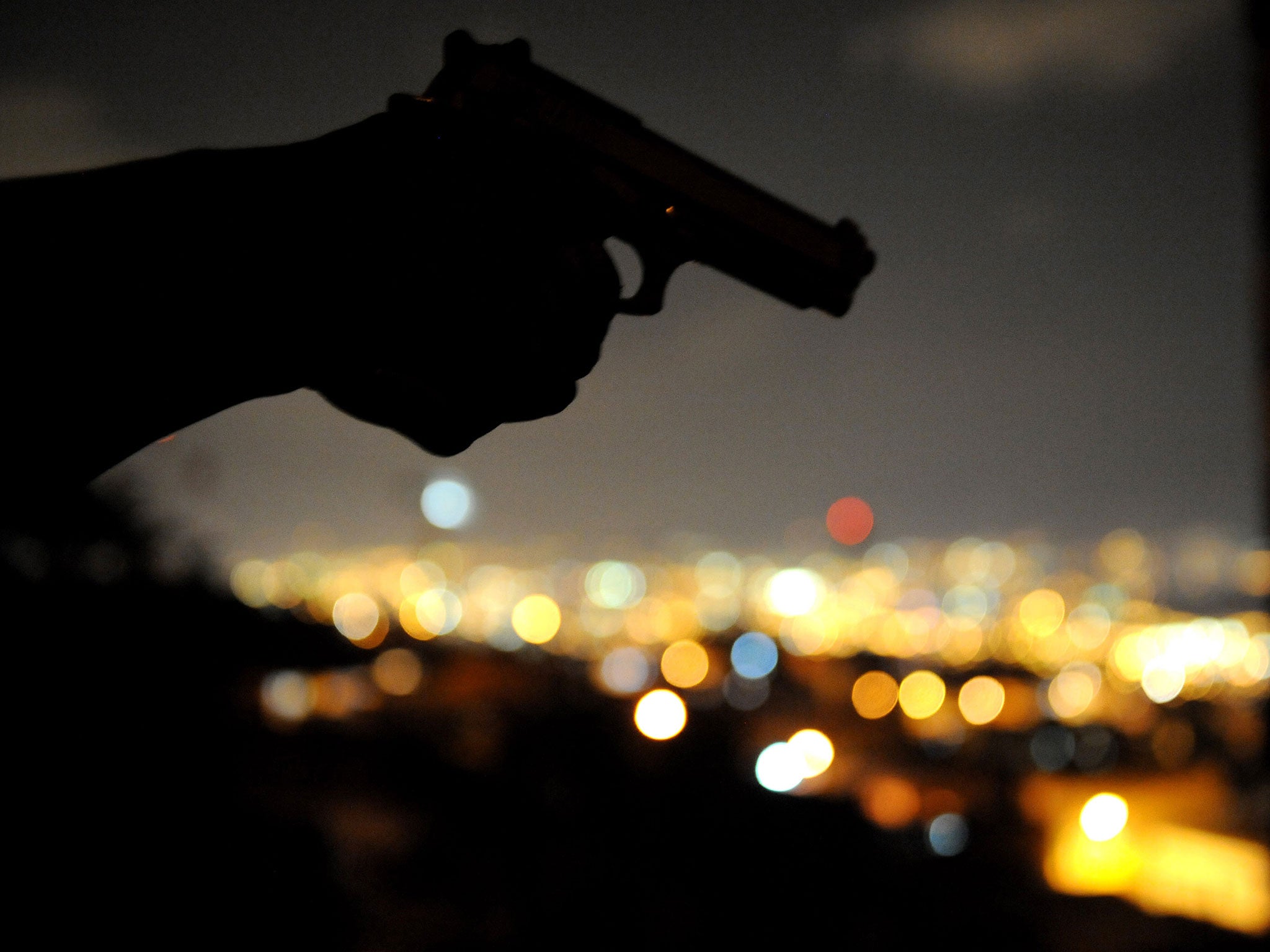US cities tackle gun crime with cash incentives and trips abroad for young criminals
Five years into Richmond’s multimillion-dollar experiment, 84 of 88 young men who have participated in the programme remain alive

Your support helps us to tell the story
From reproductive rights to climate change to Big Tech, The Independent is on the ground when the story is developing. Whether it's investigating the financials of Elon Musk's pro-Trump PAC or producing our latest documentary, 'The A Word', which shines a light on the American women fighting for reproductive rights, we know how important it is to parse out the facts from the messaging.
At such a critical moment in US history, we need reporters on the ground. Your donation allows us to keep sending journalists to speak to both sides of the story.
The Independent is trusted by Americans across the entire political spectrum. And unlike many other quality news outlets, we choose not to lock Americans out of our reporting and analysis with paywalls. We believe quality journalism should be available to everyone, paid for by those who can afford it.
Your support makes all the difference.Cities across America are moving to copy an initiative introduced in California: paying criminals up to $1,000 (£700) a month not to commit another gun crime.
The controversial approach launched in Richmond, a working-class suburb in north San Francisco, is claimed to have helped to reduce murder rates, some say by half. But the programme requires governments to reject some basic tenets of law enforcement and challenges notions of appropriate ways to spend tax dollars.
In Richmond, the city has hired ex-convicts to mentor dozens of its most violent offenders and allows them to take unconventional steps if it means preventing the next death. For example, the mentors have coaxed inebriated teenagers threatening violence into city cars, not for a ride to jail but home to sleep it off – sometimes with loaded firearms still in their waistbands. The mentors have funded trips to South Africa, London and Mexico City for rival gang members in the hope that shared experiences and time away from the city would ease tensions and forge new connections.
And when the elaborate efforts at engagement fail, the mentors still pay those who pledge to improve, even when they are like 21-year-old Lonnie Holmes, who was caught with a gun, or are suspected of murder. The city-paid mentors operate at a distance from police. To maintain the trust of the young men they are guiding, mentors do not inform police of what they know about crimes committed.
And yet, interest in the programme is surging. Officials in Miami, Toledo, Baltimore and more than a dozen cities in between are studying how to replicate Richmond’s scheme.
The District of Columbia is the first in line. Implementing the model has emerged as a central fight this year between Washington DC’s Mayor, Muriel Bowser, and its council. Ms Bowser, a Democrat, argues that the city should use its resources to fund jobs programmes and that there is little independent analysis of the Richmond scheme. She did not include money for it in her 2017 budget. But this month, the council unanimously approved the idea as the best response to a surge of violent deaths that rocked the city last year.
Five years into Richmond’s multimillion-dollar experiment, 84 of 88 young men who have participated in the programme remain alive, and four in five have not been suspected of another gun crime or suffered a bullet wound, according to DeVone Boggan, the scheme’s founder.
In 2007, Richmond’s murder tally surged to 47, making it the sixth-deadliest US city per capita. In the 20 preceding years, 740 people died from gun violence. Politicians began to see this as a public health emergency.
Washington Post
Join our commenting forum
Join thought-provoking conversations, follow other Independent readers and see their replies
Comments